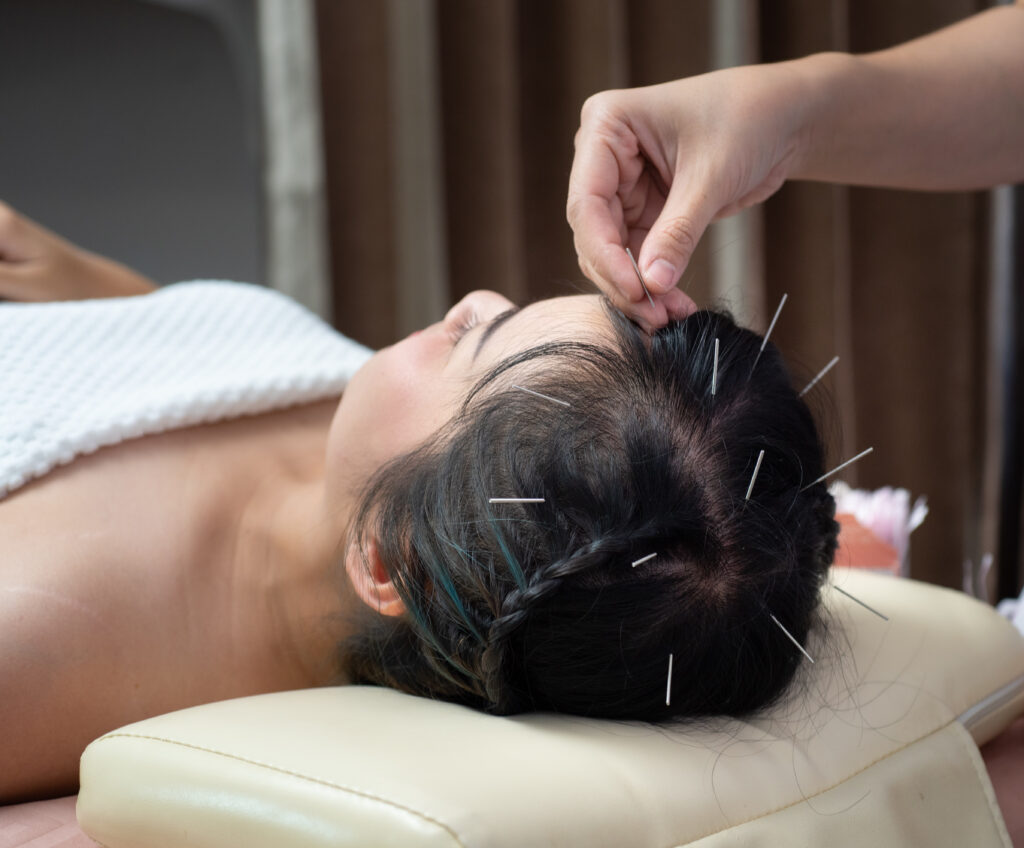Originating in ancient China over 2,500 years ago, acupuncture has stood the test of time as a key pillar of traditional Chinese medicine. Its efficacy and holistic approach have led to its designation as the number one go-to healing modality in many parts of the world.

Acupuncture: Balancing Body, Mind, and Spirit
1. Holistic Harmony:
Acupuncture works by creating a reaction with a very thin needle to stimulate the immune response. This brings blood flow, nutrients and oxygen through that path. Because of the long history of acupuncture, the verbiage may sound whimsical to use body’s vital energy, or Qi, but is very powerful in creating a strong modality in healing and strength. As you know when you are stressed you may want to eat more, you can see this holistic approach interconnects the physical, mental, and spiritual well-being.
2. Hormonal Balance:
Scientific studies suggest that acupuncture can modulate the endocrine system, promoting hormonal balance. Also noted that the calming affect of acupuncture can stimulate the parasympathetic and allow the adrenals to recuperate. Acupuncture and traditional Chinese medicine is powerful for reproductive health, stress management, and overall hormonal harmony.

3. Organ Health:
The meridians and dermatomes targeted in acupuncture are associated with specific organs. By optimizing the flow of energy through these channels, acupuncture contributes to organ health, potentially improving function and reducing the risk of ailments.
Addressing Common Health Concerns:
4. Digestive Well-being:
Acupuncture has demonstrated effectiveness in promoting digestive health. By addressing imbalances in the digestive system, it may alleviate issues such as indigestion, bloating, and irritable bowel syndrome (IBS).
5. Headache Relief:
Research indicates that acupuncture can be a valuable tool in the management of headaches, including tension headaches and migraines. The stimulation of specific points may reduce headache frequency and intensity.
6. Muscle and Joint Pain:
Acupuncture is renowned for its efficacy in alleviating muscle and joint pain. By enhancing blood circulation and reducing inflammation, it provides relief for conditions such as arthritis, back pain, and muscular tension.
Nervous System Balance: Sympathetic vs. Parasympathetic
7. Fight or Flight and Rest and Digest:
The autonomic nervous system’s sympathetic (fight or flight) and parasympathetic (rest and digest) branches play a crucial role in overall health. Acupuncture has been linked to a shift towards parasympathetic dominance, promoting relaxation and reducing the detrimental effects of chronic stress.
8. Pain and Sleep Correlation:
The benefits of acupuncture extend to sleep quality and pain management. By addressing imbalances that contribute to pain, acupuncture may improve sleep patterns, fostering a more restful and restorative sleep.